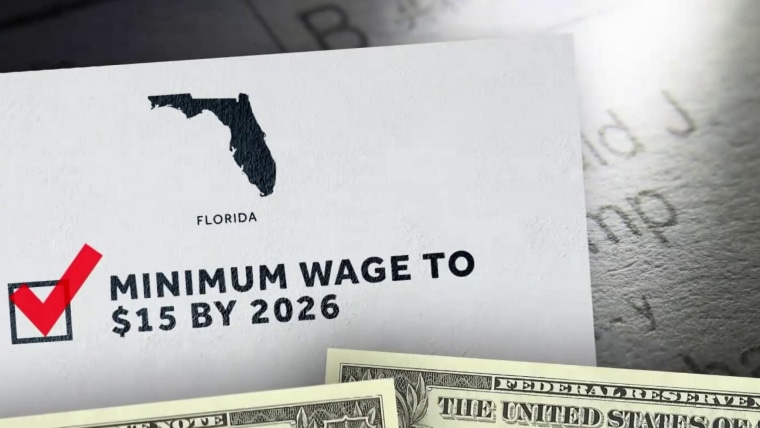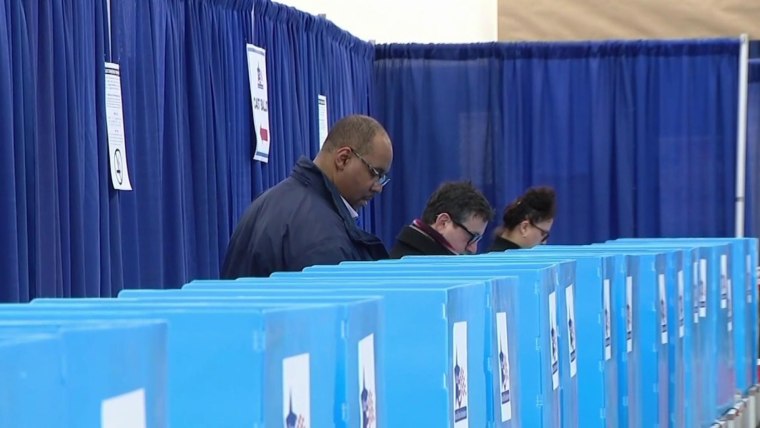After Idaho Medicaid expansion received resounding support at the ballot box in 2018 along with funding for education, the Republican Legislature began pushing to make future ballot initiatives more difficult. Instead of requiring organizers gather a percentage of signatures from 18 of the state’s legislative districts, the GOP lawmakers passed a law that required them to gather signatures from all of the state’s 35 districts.
That means that future organizers will have to travel to far-flung sections of the rural state, potentially increasing costs of any ballot initiative by millions of dollars for a process that most idealize as a grassroots one. Local organizing groups have complained it makes a ballot initiative nearly impossible.
Jim Jones is currently challenging that law in court with his group, Committee to Protect and Preserve the Idaho Constitution. A former Republican state attorney general and the chief justice of the state supreme court, Jones said he no longer identifies with his party, and it’s not just Idaho’s Republican-led legislature that is limiting direct democracy efforts.
“We’ve looked at what has been happening in other states, and they’re generally red states, where very right-wing legislators have pretty much captured the majority or command a majority,” Jones said. “They’ve essentially — not just here in Idaho but in other states, too — attempted to make the initiative process inoperable, so that people don’t have a way of getting around a recalcitrant legislature.”
After facing defeats at the ballot box in recent years, a handful of Republican state legislatures have pushed to constrain voter ballot initiatives in recent months to limit the ability of progressive policies to leap past them in the lawmaking process.
In recent years, minimum wage increases, expansion of voting rights, marijuana legalization and the expansion of Medicaid among other policies have come close or gained enough voter support in conservative states to sidestep deep-red legislatures in Arkansas, Mississippi, Missouri, Florida and others.
“Increasingly partisan state legislatures are realizing that the only way that they can hold onto power is by limiting who can vote and making it harder for people to vote on issues themselves,” said Kelly Hall, the executive director of the Fairness Project, a progressive organization that has helped state groups organize ballot initiatives. “That should terrify all of us.”
There are these romanticized ideas of the initiative as a grassroots, volunteer-driven idea, and that’s just not practical.
Some states have increased the number of votes required to pass ballot initiatives, while others expanded the spread of required petitioner signatures across the state to even bring it to the ballot. In other cases, legislators have put up roadblocks to organizer funding or even increased the required font size of the policy and limited the size of the paper the petition has to be printed on.
More than 125 bills have been introduced into 31 state legislatures to amend or change the referendum or ballot initiative process in 2021, according to data compiled by Ballotpedia for NBC News. So far 19 have passed and 31 were rejected, died in the legislative process or were vetoed.
Many of these new Republican-supported policies or other roadblocks are now being challenged in court, most notably in Florida, Idaho, South Dakota, Missouri and Mississippi.
Republicans are arguing they want to limit outside influence on legislation, especially from groups that come from outside of the state. The organizers challenging them say that the legislatures are only limiting the ability to organize and making it more expensive, increasing dependence on outside groups and wealthy benefactors.
Josh Altic, who leads a team that studies direct democracy efforts at Ballotpedia, said that while Republican efforts may aim to decrease outside influence and money on the ballot initiative process, the increased barriers will likely only increase its prevalence. He noted a new Florida law that limits contributions to ballot initiative campaigns, currently challenged by the ACLU, for example.
“There are these romanticized ideas of the initiative as a grassroots, volunteer-driven idea, and that’s just not practical,” Altic said. “I don’t know if it’s ever been practical, but certainly not for the last multiple decades, except for a handful of initiatives that get on the ballot in the very smallest states.”
The average cost of efforts that result in a signature supporting a ballot initiative in the U.S. was $8.09 in 2020, according to Ballotpedia’s data. That’s 24 percent higher than the average in 2018 ($6.52) and almost double the average between 2010 and 2018 ($4.70).
But that has not stopped states from raising the barrier to entry, some in multiple ways.
Arkansas passed one law that requires a 60 percent supermajority of voters for a ballot initiative to pass. The Legislature also passed a second law that puts heavy penalties and limits on groups that organize and gather signatures. That law is currently being challenged in state court.
This comes after a majority of voters supported medical marijuana and increased the minimum wage — two issues the Republican legislature had long refused to support.
South Dakota passed a similar supermajority requirement that will be voted on in June 2022 — just months before voters will face a progressive ballot initiative on Medicaid expansion in the state. A federal judge blocked another law that would have limited the gathering of signatures by restricting the number of paid circulators advocacy groups like Dakotans for Health could use.
South Dakota state Sen. Lee Schoenbeck, who sponsored the supermajority bill, did not respond to a request for comment, but has previously said that his intention behind the law is to undermine the effort to expand Medicaid, telling a local news station that the requirement would function as “safeguards in place for the taxpayers.”
Missouri and North Dakota have also considered supermajority requirements, but their efforts died in their legislatures. The Arizona state Senate, meanwhile, has passed three related bills: a supermajority requirement bill, a bill that would allow them to repeal ballot initiatives with the permission of the state Supreme Court, and a bill that would require a statewide vote on passed ballot initiatives every five years. Arizona state Sen. Warren Petersen did not respond to a request for comment.
Meanwhile, Mississippi’s Supreme Court has totally dismantled the ballot initiative process through which organizers successfully passed medical marijuana legalization and planned to push Medicaid expansion and early voting requirements — all policies that the state’s Republican legislature had long refused to act on.
Craig Burnett, a political science professor at Hofstra University who studies forms of direct democracy, said that while there is currently a trend of Republican limits on ballot initiatives, Democrats have also tried to impede conservative efforts to expand voter ID laws and limit same-sex marriage.
But, he said, there has recently been a heightened level of limitations to a process that breaks through partisan politics.
“Out of legislative reluctance you get direct democracy, which is kind of called ‘the gun behind the door,’” Burnett said. “It can help change the way in which legislators legislate if they feel they’re going to be threatened with the initiative. At times, it actually causes them to moderate somewhat, and on the other hand, it pushes through issues that are not being considered or the legislature has punted on.”
Nevertheless, many said they found it a worrying trend and also highlighted recent examples of Republican-led legislatures tinkering with ballot initiatives to neuter them or block them altogether.
Most recently that came when voters in Missouri passed Medicaid expansion at the ballot box. Republicans in the state’s House and Senate chose to block funding for the program, which has frozen a process that would bring an estimated 230,000 low-income people health care coverage. That resistance to expansion is now challenged in court.
In Florida, Desmond Meade, the founder of Florida Rights Restoration Coalition and a former felon, is very familiar with how legislatures can get in the way of this form of direct democracy. He helped organize the effort to return voting rights to ex-convicts through Florida’s Amendment 4 ballot initiative.
Months after Floridians gave it their resounding stamp of approval — 65 percent to 35 percent — Republicans in the state required felons to ensure they had paid all their fines and court fees before they would be allowed to vote again.
That tactic disenfranchised thousands of potential voters who had to figure out whether or not they owed money. The state, meanwhile, still has not created a system to inform felons what they might owe.
“We’re now seeing a direct assault on democracy,” Meade said. “They’ve limited the ability of citizens to weigh in on how their communities or states are governed, and then they’ve limited access to the ballot box and made it more difficult for people to vote. At the end of the day, how is that OK?”
Source: | This article originally belongs to Nbcnews.com












